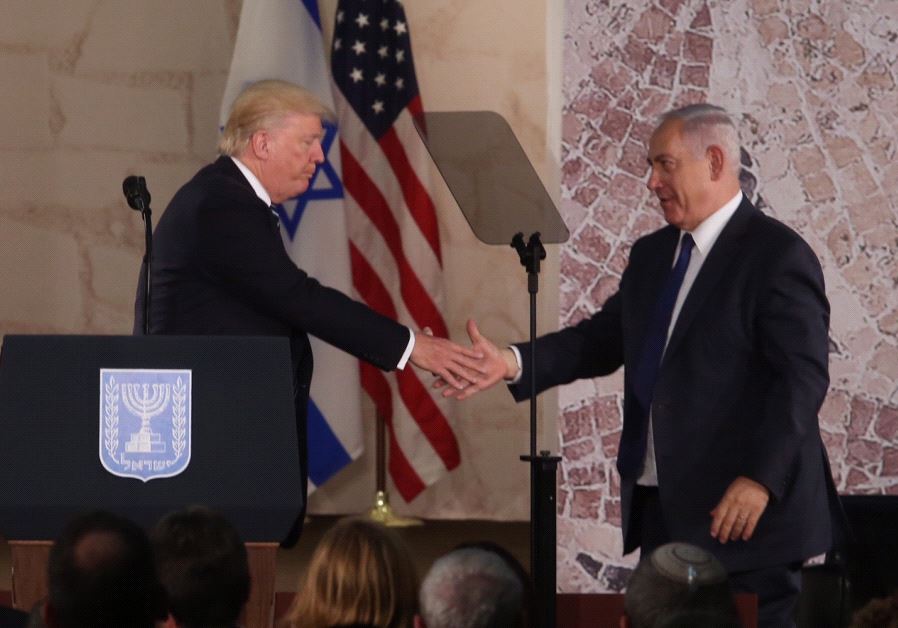Ongoing Russia scandal overshadows president’s first official trip abroad
Trump administration officials thought his eight-day trip abroad would change the narrative that was dominating print and cable news.
 US President Donald Trump and Prime Minister Benjamin Netanyahu at the Israel Museum(photo credit: MARC ISRAEL SELLEM)Updated:
US President Donald Trump and Prime Minister Benjamin Netanyahu at the Israel Museum(photo credit: MARC ISRAEL SELLEM)Updated: